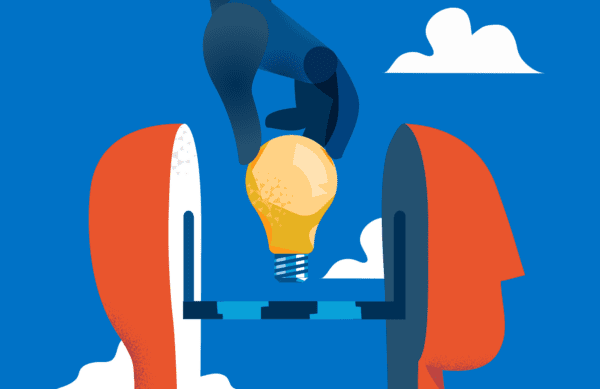Meet Keith Chessell, Chief Executive of Whzan Digital Health. Whzan Digital Health produce clinically lead healthcare monitoring systems which aim to enable greater levels of care and help keep people out of hospital. Read what Keith has to say about how AHSNs have provided support in finding the right people to talk to, helping people at home with the new WhzApp and his advice for budding innovators.
Tell us about your innovation – what and why?
Our main product is the Blue Box a telehealth case that contains a tablet and portable wireless instruments to measure vital signs, perform assessments and spot signs of deterioration. The data is stored on the cloud so that healthcare professionals can review it wherever they are and decide if any intervention is needed. Data is also sent to patient record systems and our system is linked to 111.
We’ve done a lot of work in care homes to help the staff monitor patients and communicate meaningful data to clinicians, they’ve said that it’s like having another pair of hands.
What was the ‘lightbulb’ moment?
I would say that this was when we had a prototype being used by real patients. It really does reduce patient anxiety. For example, a patient we have been told about on the Isle of Wight with Chronic Obstructive Pulmonary Disorder (COPD) used to call out an ambulance around 30 times a year, since using the Blue Box they’ve only called an ambulance once a year and now have a much better quality of life.
Which AHSNs are you/have you been supported by?
Several AHSNs have been involved. AHSN for the North East and North Cumbria produced an independent study showing that eight care homes saved more than £756,000 in emergency services costs over one year by using the Blue Box. Having that report and the success with real patients is what allowed us to move up a gear.
In addition, Eastern AHSN, UCLPartners, Kent Surrey Sussex AHSN, Health Innovation Network and South West AHSN have all been very helpful. We struggled to find the right people to talk to in each region and the AHSNs have been invaluable in this respect.
What’s been your toughest obstacle to date?
It’s finding the right people in the NHS who would benefit from using Whzan products. In the early years it was incredibly difficult to access the NHS and social care system. Each organisation is set up differently, so you never know exactly who to speak to, or what their timeframes and operational processes are. The AHSNs have helped us with this.
Thankfully, we also had an international business at the time in another sector and were therefore able to support Whzan financially as a side-line. We have a three-year sales cycle with Whzan, which is long, and you need to be prepared for that. It took a long time to take off, but this is now our only business.
What are your hopes for the future?
Whzan is being used in many more applications now. There is growth for Whzan in virtual wards, wearables, domiciliary care, in annual physical health checks, long term conditions, all types of care homes and more. We’ve launched a free Whzan App (WhzApp) to help everyone with their own health at home. My hopes are that we continue to expand, bringing low cost and free health support tools to the UK and beyond, we’re looking at America next.
What’s the best part of your job?
The best part of the job is receiving feedback from our system users, both clinicians and patients. It’s so pleasing to see Whzan helping people and hearing about the positive changes it’s made.
Three pieces of advice for budding innovators?
This is a tricky one as so much depends upon their products and the applications, I would go with:
- Perseverance, be prepared for a long haul, rejections, and setbacks. If the idea is good stick with it.
- Minimise costs, focus on the product and use networks like the AHSNs to reduce marketing and sales costs.
- Don’t underestimate the power of trust, it is essential for the long-term relationships you will need.

“Health equity is the attainment of the highest level of health for ALL people. Achieving health equity requires valuing everyone equally with focused and ongoing societal efforts to address avoidable inequalities, historical and contemporary injustices, and social determinants of health — and to eliminate disparities in health and health care.” (health.gov) Within the NHS there [...]

Sickle cell disease (SCD) is a serious and lifelong health condition. People with SCD produce unusually shaped red blood cells that can cause problems because they do not live as long as healthy blood cells and can block blood vessels. This can result in suffers experiencing painful episodes, called sickle cell crises, as well as anaemia, [...]

At the Royal Society of Medicine’s Tackling Inequalities conference it was clear from the passion in the room that great progress has been made across the system to better support some of our most under-served communities. To maintain this momentum, we must not just embed tackling health and healthcare inequalities in all that we do, [...]







